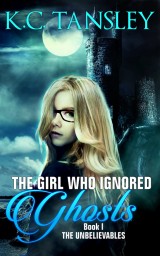Most writers make the mistake of introducing too many characters or not making clear who the main character is.
The Hobbit is an excellent example of how to do this properly. We open with Bilbo Baggins. We meet his nephew Frodo briefly, which gives us an anchor from The Fellowship of The Ring films. It’s easier to connect with Bilbo because we know him from the other films, but having Frodo there reminds us of this connection.
Gandolf shows up to take Bilbo on an adventure. Another signal that Bilbo is the main character. Bilbo refuses.
Later, dwarves start showing up on his door in 1s, 2s or 3s. We get to know the dwarves and see how they interact. We might not know all of them by name but we get a feel for who they are individually and within their group.
Then Thorin shows up. We know he’s important. He was the last to arrive and his arrival shifts things.
We watch Bilbo struggle with these uninvited guests. Fret over his food being devoured and the possibility of dishware being broken. Then he receives the invitation to join their quest. We feel for him. Who would want to leave their comfortable life for some dangerous unexpected journey?
The time spent seeing him in his natural habitat helps us understand him and sympathize with him. We bond. Because we see who he is. No one tells us Bilbo is a contented non-adventurous sort. We surmise this from his reactions to the dwarves and the invitation.
To say that this is an epic adventure is an understatement. My mom and I both left the theaters with racing hearts. We were drawn so deeply into the film and were so invested in the characters, we experienced every threat with them. And I think a huge part of that is attributable to the opening sequence.








It really is handled quite well. And, despite all the negative reviews The Hobbit received, I loved it and wait (impatiently) for the next installment.
I thought it was a terrific adaptation of the book. I can’t wait for the next one too. 🙂 My mom isn’t a big fan of fantasy but she loved all the characters and found herself rooting for them. To me that’s the mark of a good movie. 🙂
Funny you say that. The second time I went to see it was with a friend who had never read The Hobbit, seen or read LOTR, and not what I’d classify a fantasy fan. She watched it, loved it, immediately borrowed Fellowship of the Ring from me to watch and is anxious for the next.
That’s awesome! My mom’s not that gung-ho but she said she’d go see the next movie with me. 🙂
It really was brilliant, Kourtney. Have you ever read Chris Vogler’s book about the mythic journey? Step by step this story follows the universal pattern, but in its own wonderful way.
Hi Naomi, after seeing your New Year’s party pics, I thought you might agree.;) I haven’t read it yet. It’s on my to-read shelf, err, bookcases. I heard it was a terrific tool from my crit partner too! Two solid recommendations mean I should get to it in 2013. 🙂
again a great review …………. i would of never thought to go see this One ……………… 🙂 but your reviews just rock ………… i.e.- silver linings playbook 🙂 AMAZING 🙂
so – maybe xxxxxx 🙂
Hugs
xx C
Thanks! I’m a fantasy buff so this was totally in my wheelhouse. But my mom who hates fantasy liked it. It was a thrilling adventure and I totally crushed on Bilbo. My friend fell for a dwarf. ;P
LOLOLOLOLOLOLOLOLOLOLOL 🙂
thanks for the Giggle 🙂 lol
🙂 xo
LOL. I never thought I would crush on Bilbo. But the actor did such amazing work bringing the character to life and showing who he was. Sigh. I have a crush on a hobbit now.
Sigh…….lolololololololol
you’re sense of humour is way cute 🙂 xxx love u xo
Aw thanks. 😉 Glad you get me. Lots of love,
K
i soooo get you ………………… like you were my sister or something – lol ………… i am writing a post right now on a STAYCATION . lol – i’m so tired i am GIDDY 🙂 XO
LOL. Aw thanks for getting me. Totally feels that way. LOL. Awesome post-Staycations rock! I’ve missed you on your blog. That’s a fun tired. Then I get slap happy. Rest well! 🙂
you know that feeling when you are doing everything at once – ? lol ……. and then you realize woahhhhhh- slow it down or else you will never be able to speak again – ONLY WHISPER 🙂 lol ……… That’s what i am feeling – one thing at a time catherine 🙂 lol xxx That’s me talking to myself by the way 🙂 lol 🙂 🙂 🙂 Love Love Love xo and Staycations and being able to speak in a normal tone would be good 🙂 lolololol
Giddy so tired C xoxoxoxoxoxo
Yes and sometimes it’s completely manageable and other times it careening into chaos. 😉 Please do take care of yourself. Bit by bit it will all get done. I talk to myself too. 😉 Love and staycations! Yoga and rejuvenation.
Big Hugs,
K
🙂 🙂 🙂 everything under the sun can’t be done in one nanosecond right 🙂 xxxxxxxxxxxxxxxxxxxxxxxx
Bigger Huggs xoxoxooxoxoxxooxox C x
I’d agree with that statement. 🙂 Hope your voice is on the mend. XOXOXOXOX
K
it is my sweet – just babysat my niece – and hung out with my sister – I can speak normal now 🙂 lolololol xo
Wonderful! So happy your voice is good again. Aw that must have been nice to spend time with family. 🙂 Big Hugs,
K
XOXOXOX
Hugggggggggs xo K heart xxxxxxxxxxxxxxxx
Hugsssssssssss back Catherine! 🙂 xoxoxooxxooxoxoxo
Great analysis, Kourtney.
My husband thought Radugast with his bunny-sled was ridiculous, and definitely not in the book, but I forgave them for that. What I object to is the expansion of the action scenes to the point where it exceeds the needs of emotional impact or plot development and becomes just gratuitous. I thought Tolkien got it right on that score, while the makers of the movie overdid it. I guess that’s because they think it’s what modern audiences want.
Thanks. 🙂 I liked Radugast and the bunny sled because for me it provided a light-hearted element to the adventures. I read The Hobbit 23 years ago so my memory is a bit spotty on it. I kind of prefer it that way. When the book is too fresh in my mind, the movie will never be as amazing as what’s in my head. 🙂 I felt like everything had to be elongated to make one book into a couple movies. Even the opening felt longer to me, but it didn’t detract from my enjoyment of the film.
My son is obsessed with this book and movie. Me, not so much. (In fact, between this and your comic book conventions, my son would no doubt think you are far cooler than me.) But I agree with the need to pay attention to how many characters we introduce and when. I read a Dean Koontz book last year, and there were so many characters being introduced chapter after chapter, that it became really difficult to read. Judging by the reviews, I’m not the only reader who felt that way.
LOL. I loved the book too. I think sometimes we rush to get going and can lose the reader in the first chapter. In one of my crit groups, a writer opened her book with 5 friends hanging out and in mid conversation. It lost 95% of us. I haven’t read a Koontz book yet, it’s definitely on my to read list. Hopefully, not that one. 🙂
Yes, best to avoid ’77 Shadow Street.’ Not one of his best. My favorite of his is ‘Watchers.’
Thanks! I’ll check out the Watcher then. 🙂
This was one of the most exciting action packed fantasy movies i ever watched and actually loved. I fell for bilbo and wanted a gandalf. Loved it.
It got my blood pumping better than a workout! Aw how awesome would it be to have a Gandalf coming to the rescue at the perfect moment? 🙂
I missed it at the cinema, looking forward to catching it on DVD!
It was one of those movies I really wanted to see at the theater but figured I’d have to watch on dvd because no one I knew wanted to see it. Luckily Mom agreed to go. 🙂 I hate when several good films come out around the same time makes it really hard to see them all in the theater. 😉
Interesting take, because I felt the opposite. I haven’t read the book, but I was familiar with the premise. Although I knew who the mc was from the beginning, I got lost soon after that. I thought there were way too many characters, and I couldn’t follow the movie at all. I started checking the time neurotically, wondering when the hell this thing would be over so we could finally leave.
My husband and daughter #2 felt the same. Only daughter #1 enjoyed the film. But alas, she’d read the book in school.
I guess this is why there are so many differing opinions on the film. 🙂 One person’s perfection is another person mwah.
I really like The Hobbit and even saw it in 3D 😀
Aw, I’m so jealous! I wanted to see it in 3-D but didn’t go soon enough. 🙂
Having read the book (and LOTR and The Silmarillion) many times, I was of two minds on the movie (seen in an IMAX theater). I thought it was a good adaptation but found the special effects to be too much. For me, they actually detracted from the experience. I also think three films is a bit much for the story, especially when LOTR—a much longer and more complex story—only had three.
I know Jackson is probably going for some “modern” interpretations and laughs with Radagast and “mushrooms” and the references to “weed” in LOTR, but those really aren’t what Tolkien meant. 😉
Introducing fourteen major characters isn’t easy! And I’m sure a lot of people couldn’t keep all the dwarves straight. Despite the bits I didn’t care for, I’ll be there for the next two films. 🙂
I can understand that. There were a good amount of special effects. I did think three films was a bit much for one book. Two films I can kinda understand. But given that LOTR was one book to one film, this seemed superfluous.
LOL. Very true.
Definitely not. I didn’t know each dwarf’s name, but I got who the key players were. And I had a sense of each one’s personality. I struggle when books introduce lots of characters at once, but I found the way the movie did it allowed me to stay in the story and not get bogged down in names.
I will be there as well. I really love fantasy movies. 🙂
When there are lots of characters, finding that balance is difficult. Introduce too many at first, and many readers are confused. But continually adding new ones through the story also turns off other readers. I hope I’ve done a good job with deleting some in my WIPs. 😉
That’s so true. It’s really hard to strike the right balance. I prefer to hang out with the main character a bit before meeting new people, but I’ve scene writers open with 5 central characters in the first scene and it worked–I’m thinking of Pretty Little Liars here. The fact that you’ve worried about it tells me you’ve probably handled it well. 🙂
One piece of advice I read is about how much actual page space given to the character should be in direct proportion to his/her importance. That signals to the reader who is essential and who is a background player.
With the dwarves in the movie, the amount of time allocated to each one at the start gave me a clear idea of who mattered the most and who was going to be a secondary/tertiary character.
I am saving this until I can watch it at home. However it is an interesting point about how it uses characters. The Lord of the Rings trilogy is also interesting in this regard, if you revisit it.
I remember when I read the original books, I had to reread and make sure to get through 50-100 pages on the go-round to get into the story. I’m planning to rewatch the movies this year. I love Tolkien and it’s been too long. 🙂
I haven’t seen this film, but I love the story so will look forward to renting it. I agree about too many characters, it can water down the storyline if they aren’t used properly. I find this problematic in most fantasy novels, which seem to go overboard in the character dept.
It used to drive me nuts as a reader. Now if its done right I’m okay with it. As long as I clearly see the main character and there aren’t too many minor characters with similar names. 🙂